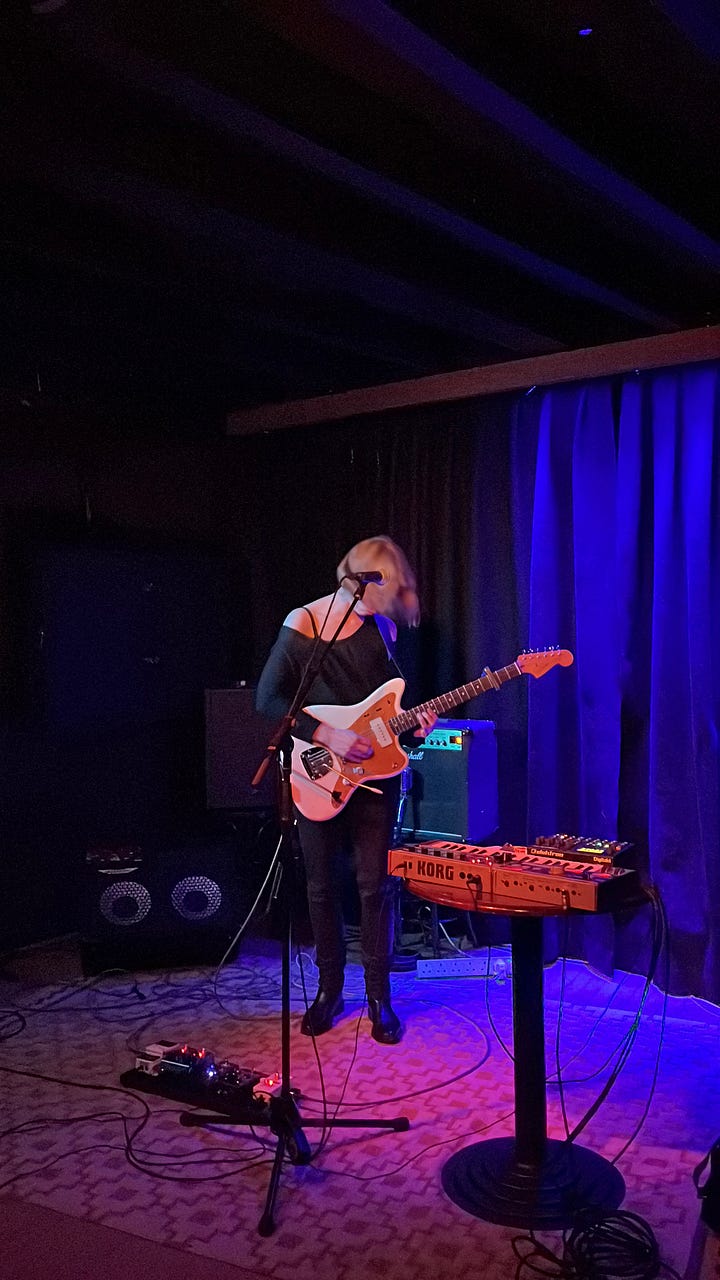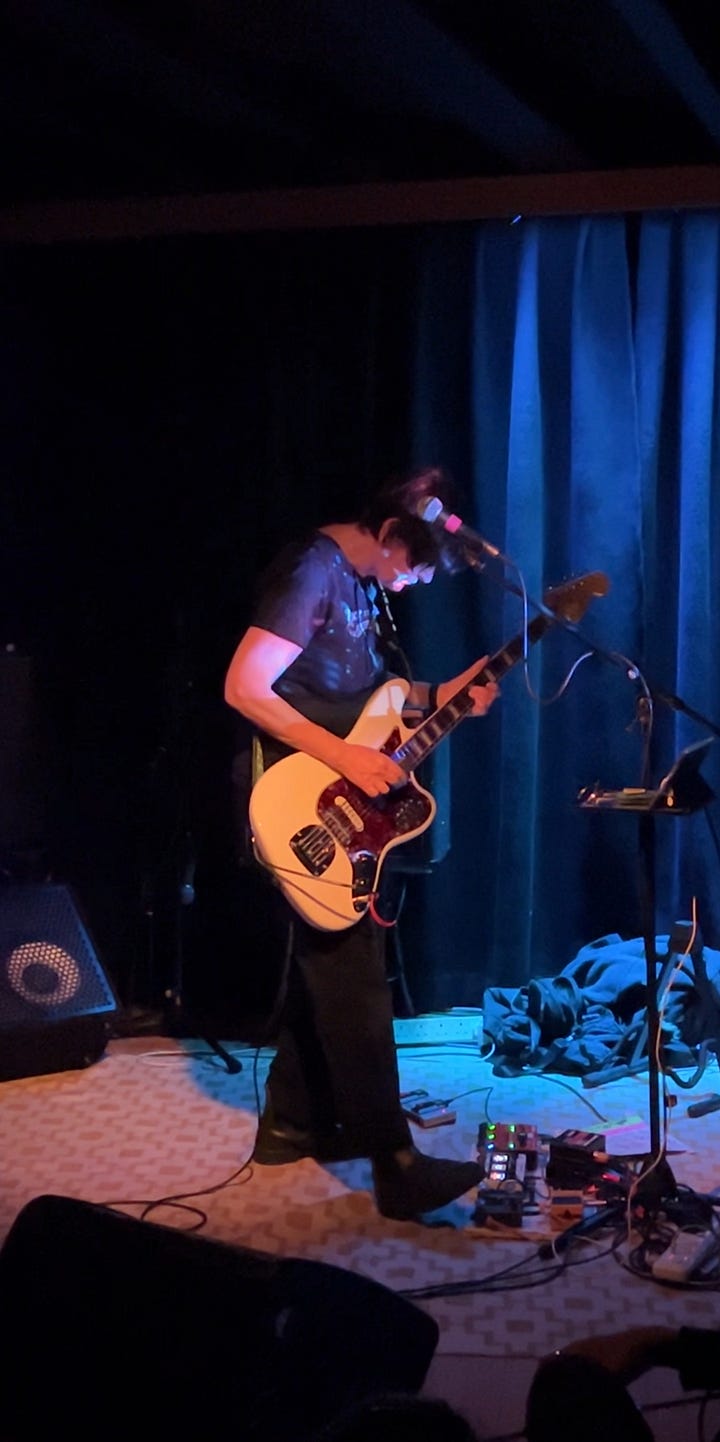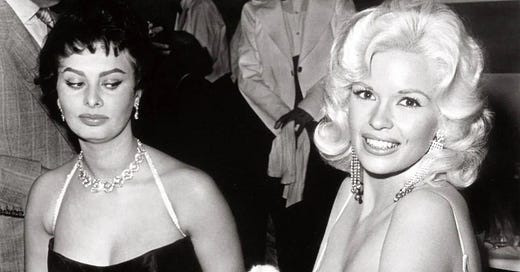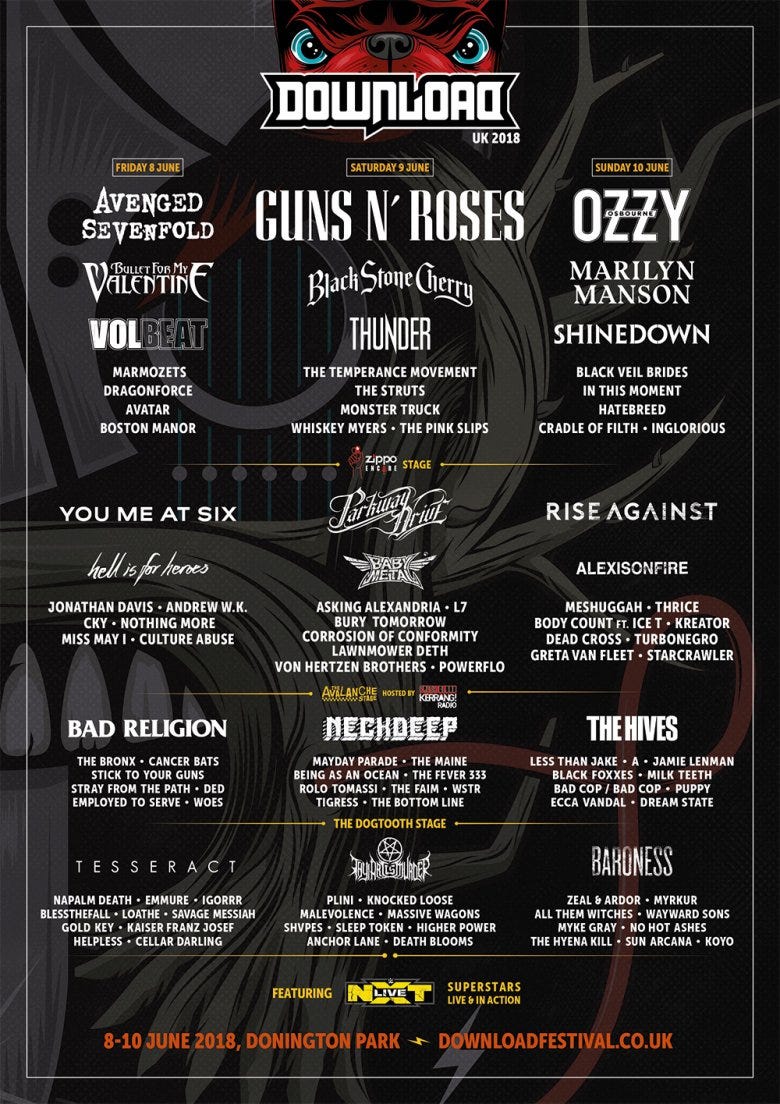I didn't truly believe women wanted to support other women until my late twenties. Not because I was cynical but because my experiences had taught me otherwise. My relationships with women—starting with my own mother—were defined by competition, betrayal, and sabotage. And thanks to my dad's insatiable need for young female companionship, there was a revolving door of girls in my life from an early age. One 18-year-old fixture made a nightly habit of slipping into my bed, "tickling" my back under the guise of comforting me as I tried to fall asleep. In hushed tones, she would list my worst traits: I was a burden. A drain on my father. Not cute—annoying. Not talented—delusional. I internalized her words so deeply that, rather than upsetting me, they usually lulled me to sleep.
I understood the message loud and clear: Women were crazy, manipulative, and untrustworthy—at least, that's what every man in my life told me and every woman illustrated. And despite enduring belittling, gaslighting and sexual violence at the hands of dudes, the wounds inflicted by women somehow cut deeper. Their hatred set fires. Their jealousy was relentless. Their manipulation was unmatched.
Things may be different now for GenZ and Alpha, but as a Millennial, I was raised in an era that thrived on pitting women against each other. Nowhere was this more evident than in Hollywood, where I spent many years clawing through the music industry. In LA in the mid-aughts, there was no sisterhood or camaraderie. Long gone were the Riot Grrrl days. Women weren't allies; they were competitors. And for someone like me—young, ambitious, and desperate to carve out space—I was determined to not get trampled.
In the rock genre, there was room for only one "token girl." Maybe two, if the festival lineup was feeling generous. And that coveted slot wasn't given—it was fought for. And let me tell you, the battle was brutal. Even the women who weren't fighting for the spotlight had little interest in lending a helping hand. They preferred to stay cozied up with the dudes. The less women around, the better.
A female booker at a popular Silverlake venue refused to give me shows—not because she disliked my music, but because, based on the attention I was getting from certain famous men, she had already decided I was a "talentless slut." A well-known female radio DJ helped reinforce this narrative without ever seeing me play or hearing my music. A popular all-girl rock band refused to let me open for them because—as their manager ended up revealing to me—they didn't want to risk me up-staging them. Famous women who presented themselves as feminists were often only doing so for optics. I still know women who act like girls' girls in public but, behind closed doors, are the first to take another woman down. Even here, on Substack, whenever I've written anything about the unfair treatment of women or critiqued the behavior of abusive men, there's always a woman who leaves a nasty comment about my personal life or appearance that's aimed at hurting me. In these ways, women haven't just been victims of misogyny—we've been its enforcers. We police each other, uphold the same impossible standards imposed by men, and punish those who don't conform. Internalized misogyny isn't just passive bias; it's an active force that keeps patriarchal systems intact, ensuring that women stay divided rather than unified.
I write about the music business because it's the world I know best, but the double bind for women exists everywhere. Whether we work in politics or work in an office, women are stuck in catch-22 positions. We have to be powerful, but not too powerful. We must be attractive enough to get attention but not enough to be a threat. We learn that showing confidence is appealing, but showing too much confidence is emasculating. Women must walk the tightrope in an uphill battle—not just against men, but against each other.
This doesn't just lead to competition—it leads to complicity. Women who have stood by toxic men to maintain their own status reinforce the very system that keeps us all down. Harvey Weinstein's lead defense lawyer was a woman who made her career defending men accused of sexual assault. The smear PR campaign against Blake Lively (I can't be bothered with the details of this BS, but this tidbit I found interesting) was led by female publicists, Melania Trump—whether you agree with her politics or not—chose to remain beside a man infamous for demeaning women. It's easy to judge these women, but that only furthers the patriarchal agenda. Survival in a world where powerful men call the shots often means women are pressured to compromise their integrity or lose sight of it altogether. I can relate to this to a degree. There were times early in my career when I stayed silent when I should've spoken up and played along when I should've walked away. Not because I lacked principles but because I was trying to survive. Years of conditioning teach women that there is little to no space for us at the top, so we're lucky if we even get a chance to gasp for air. The systemic structures force women to compete, often for things men take for granted: power, respect, visibility, and the ability to thrive.
But even as I internalized these messages for years, cracks began to form in that belief. When I was diagnosed with cystic fibrosis and went through my divorce, my so-called male allies lost their spines and/or vanished. Meanwhile, the women friends in my life—well, the real ones—held me together. That was when my perspective truly began to shift. I wish it hadn't taken me so long to acknowledge and appreciate the women around me. I carry a lot of regret over not being more grateful for these relationships earlier in life. But now, I wouldn't trade my relationships with my female friends for anything. The solidarity between us is irreplaceable.


Last Saturday, on International Women's Day, I felt the full weight of that solidarity. I was at a dingy basement dive bar in Hackney, London, watching my friend Jorinde play. Deb Googe from My Bloody Valentine was also on the bill. No egos. No competition. Just women showing up for each other's art. For the first time in months, I felt inspired to play a show again, not as a token girl-fronted act on a bill with dude bands, but as part of a community of artists who uplifted, rather than undermined, one another.
Women treating each other like enemies has only allowed the patriarchy to thrive while we fight over scraps. But what if the real revolution isn't about women fighting men but about women uniting? We can't dismantle a system that's designed to keep us oppressed until we recognize our collective power and quit tearing each other down. I've never been one for overarching conclusions or Kumbaya takeaways, but it may be just that simple.
c u next tuesday.
XX CARRÉ






I think it’s important to highlight (in my opinion) that women rivalry, women pitted against each other is the making of men. A great example is the series Mad Men, where women are struggling to “make it” in the business world and are left competing against each other. Great read Carré x
Amen, sister! Sharing.